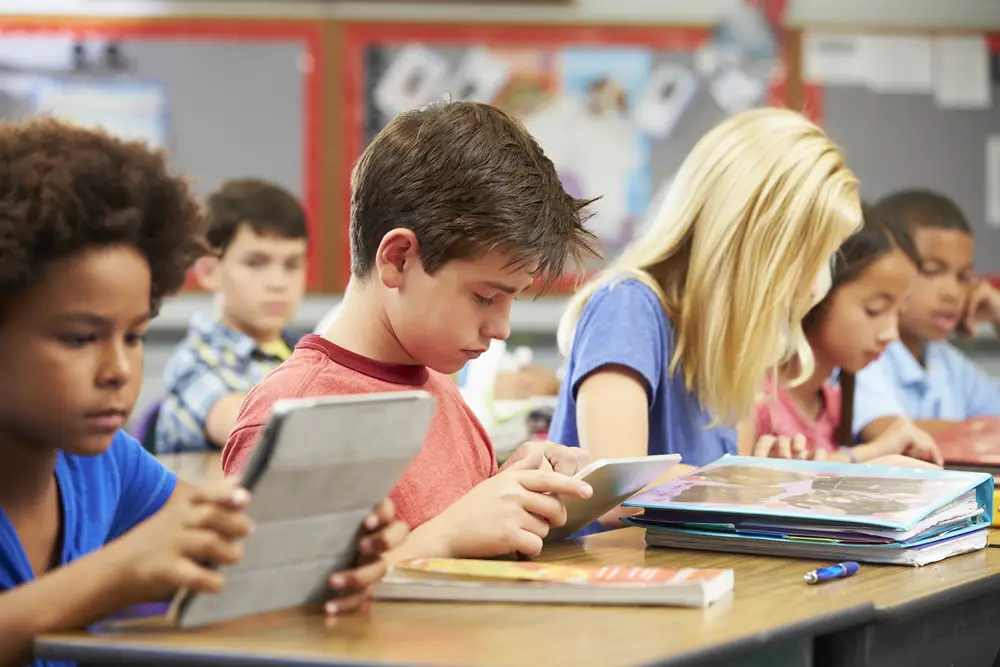How to Discuss Social Media Safety with Your Kids
Your child may be unaware of the potential dangers of social media or how it will affect them. While social media offers a platform for a child to learn and engage with others, they may put themselves at risk, especially if they are just getting started. Add to the fact there are multiple avenues for kids to engage with others online, where does a parent begin?
Given that 49% of kids between 10 – 12 years and 32% of 7-9-year-olds are accessing social media, there’s an urgent need for social media risk management. Let’s discuss how to begin a conversation on social media safety and the best way to go about it.
What Is the Right Time to Discuss Social Media Safety?
The best time to start talking with your child about social media is before they are old enough to go online and join a social media network. Each parent needs to decide what the appropriate age is for each their kids. If your child shows an interest in social media, initiate an honest conversation with them about what it is. Also, emphasize safe practices when handling social media.
How to Make the Most of Your Conversation
It may be an uncomfortable and frustrating experience discussing sensitive topics with your child. But the key is creating a safe space for an open discussion, and here are some tips to make the conversation go smoothly.
Don’t Lecture Your Child: Talk to your child instead of talking at them by making it an interactive conversation, and allowing them to share their thoughts and experiences. Begin with the positives of social media and create an environment where they can freely ask and discuss questions.
Ask Open-Ended Questions: Asking open-ended questions is an excellent strategy to make the conversation a two-way street and encourage your child to think and participate. For instance, asking your kid if they have experienced online bullying prompts them to share their online experience and further the discussion, which naturally leads to more questions.
Social Media Safety Topics to Discuss with Your Children
You can cover many social media topics, but start with the basic concepts during your first discussion. As your children grow older and gain more online experience, you can adjust the content and depth of your conversation to increase their knowledge. Here are some of the topics to start the conversation.
1. Start a Discussion About Types of Hacking
Teaching your kids about cyber security is one of the first steps in social media risk management. Your children may not know how to keep themselves safe from losing their identity and information to hacking because they are easy targets. Educate them on what hacking is and to look out for:
- Suspicious gift cards that prompt them to click links. Kids can overshare on social media, and hackers can use this information to create scams that sound exciting and urgent by targeting their emotions.
- Kids fall victim to phishing attempts where hackers trick them into disclosing their personal information. They may get prompts to confirm their details or earn free money from famous brands.
Hackers make these offers look real, but they’re too good to be true. Teaching your kids about these threats protects them from becoming victims. You can also encourage them to use strong passphrases and passwords.
2. Stress the Importance of Password Hygiene
Security may not be at the top of your child’s mind, and they may commit the mistake of poor password hygiene, allowing attackers easy access. The kids might reuse compromised passwords, easy-to-guess passwords, or add sequential numbers to base passwords.
Password hygiene emphasizes choosing and managing passwords securely. Teach your kids to choose passwords that are difficult to guess, create a unique password for each social media account, and avoid writing down the password or sharing it with others.
3. Educate them on Online Predators
There are approximately 500,000 predators online daily, so your kids should learn how to avoid them. Kids unknowingly post personal information, and online predators use social media to find out as much as they can about your child. These predators create an online persona based on your child’s interests and age.
Warn them that online predators can use fake photos to make them believe they are kids. So, they have no idea who is behind a profile they are interacting with. Practice social media risk management by asking them to follow the below security guidelines.
- They must not chat or share pictures with strangers.
- Never disclose their personal information, such as their home address, school, phone number, or last name.
- Limit their social media friends to people they know.
Kids must be alert, follow their instincts, report to an adult, and block or leave an uncomfortable conversation. Once in a while, look at your child’s phone. Check for any mysterious apps installed for private communication.
4. Social Media Exploitation
Teach them how social media exploitation can occur using social engineering methods. These are employed by scammers, hackers, and predators. Parents can only do so much to ensure online privacy. Parental monitoring only goes so far. Once a child connects with another person online, they open themselves up to a world of potential dangers.
Social exploitation methods include everything from automated spam in the form of phishing emails and exploited ads, to personal interactions with new friends and even existing ones. However, it may be a cybercriminal mascaraing as someone the same age as your child or a friend who’s account has been compromised. One bad link infected with malware on social media can infect multiple connections.
Start the Social Media Safety Conversation Today
Social media platforms pose a significant risk to your kids, and they are an easy target to hackers, phishers, and online predators. Educate them on the importance of social media risk management by making them aware of the potential dangers of social media and how to handle them. Let your kids know they can come to you with concerns.
There is also great peer pressure for kids to connect with friends on social media. Let them know that combined with the importance of staying safe online, their personal well being is just as important and kids should feel free to not engage with other friends online if they don’t want to. Or at very least, they can reduce the time they spend online.




